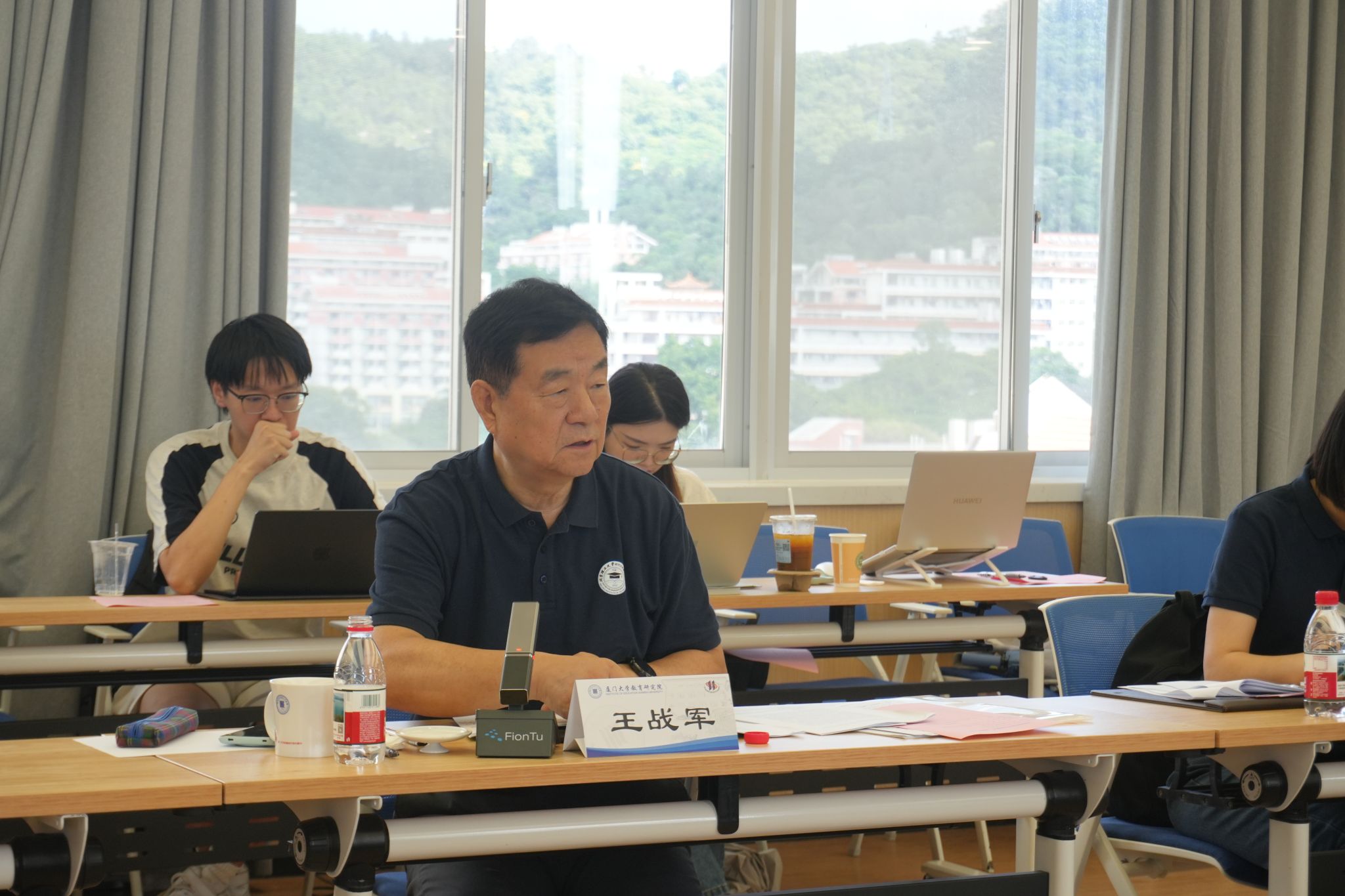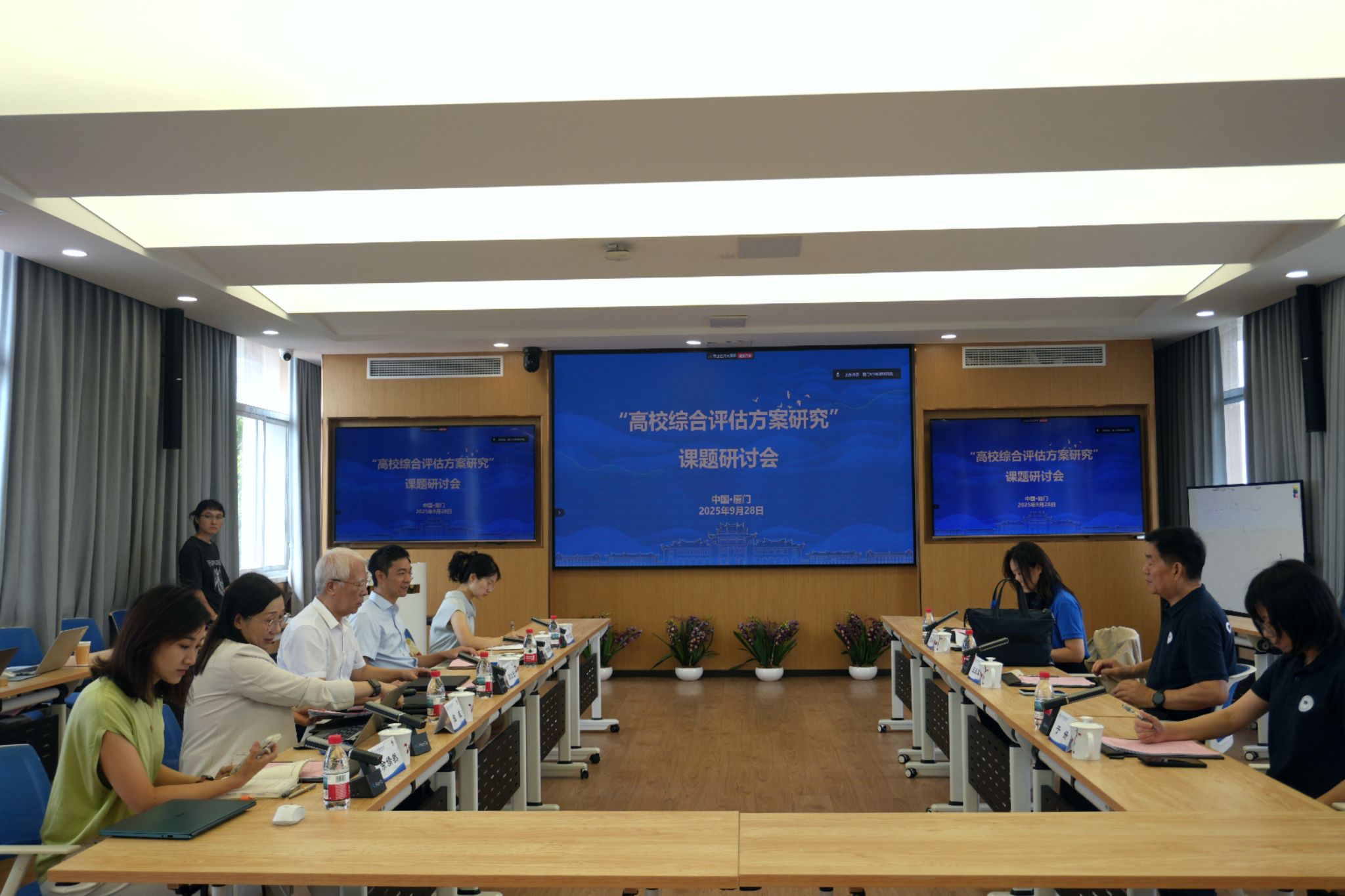On the morning of September 28, the seminar for the research project “Research on Comprehensive University Evaluation Schemes” was successfully held at the Institute of Education, Xiamen University. The meeting brought together both online and offline participants including Professor Wu Daguang, former Vice President of Xiamen University and faculty member of the Institute of Education; Professor Wang Zhanjun, Director of the Graduate Education Research Center at Beijing Institute of Technology; Professor Guo Jianpeng, Vice Dean of the Graduate School at Xiamen University; Professor Bao Wei, Director of Center for Higher Education Development of Xiamen University; Associate Professor Huang Yifan and Assistant Professor Yu Jingran from the Institute of Education; Associate Professor Peng Pai from Huazhong University of Science and Technology; Associate Professor Zhang Duanhong from Tongji University; and research assistants Yu Yan and Zhang Zehui from the Graduate Education Research Center at Beijing Institute of Technology. The seminar was chaired by Professor Bao Wei.

In his opening remarks, Prof. Guo Jianpeng first extended heartfelt thanks to Prof. Wu Daguang and Prof. Wang Zhanjun for their sustained professional guidance and steadfast support of the project. He stressed that the two scholars’ academic leadership and practical advice have furnished indispensable intellectual momentum for advancing the study. Looking ahead to the day’s discussions, Prof. Guo expressed the hope that the in-depth exchanges would forge consensus, untangle thorny issues, and catalyze a decisive breakthrough in the design of comprehensive university evaluation schemes, thereby solidifying the theoretical and practical groundwork for the project’s subsequent implementation.

During the panel discussion, Prof. Wu Daguang and Prof. Wang Zhanjun expressed full appreciation for the indicator-building efforts of the participating universities and offered concrete, constructive suggestions. On the hierarchical design of the indicator system, Prof. Wang emphasized that top-level indicators should address “conceptual issues,” second-level indicators should disaggregate these concepts, and the concrete observables should focus on “implementation issues.” Indicator construction, he warned, must be anchored in “actual effectiveness” and avoid purely formalistic design. This layered exposition provided a clear logical framework and methodological guidance for universities to further refine their systems. Prof. Wu underscored that every indicator and observation point must satisfy three core requirements—openness, autonomy, and structuration—so as to identify and remedy current weaknesses in higher-education evaluation. The structural construction of indicators, he argued, is the pivotal support for optimizing university assessment; the key is to proactively uncover long-neglected structural elements.


Representatives from the participating universities pledged to fully incorporate the seminar’s recommendations, conduct in-depth studies and systematic refinements, and devote themselves to formulating a comprehensive evaluation scheme for Chinese universities that is distinctly rooted in China’s context.
